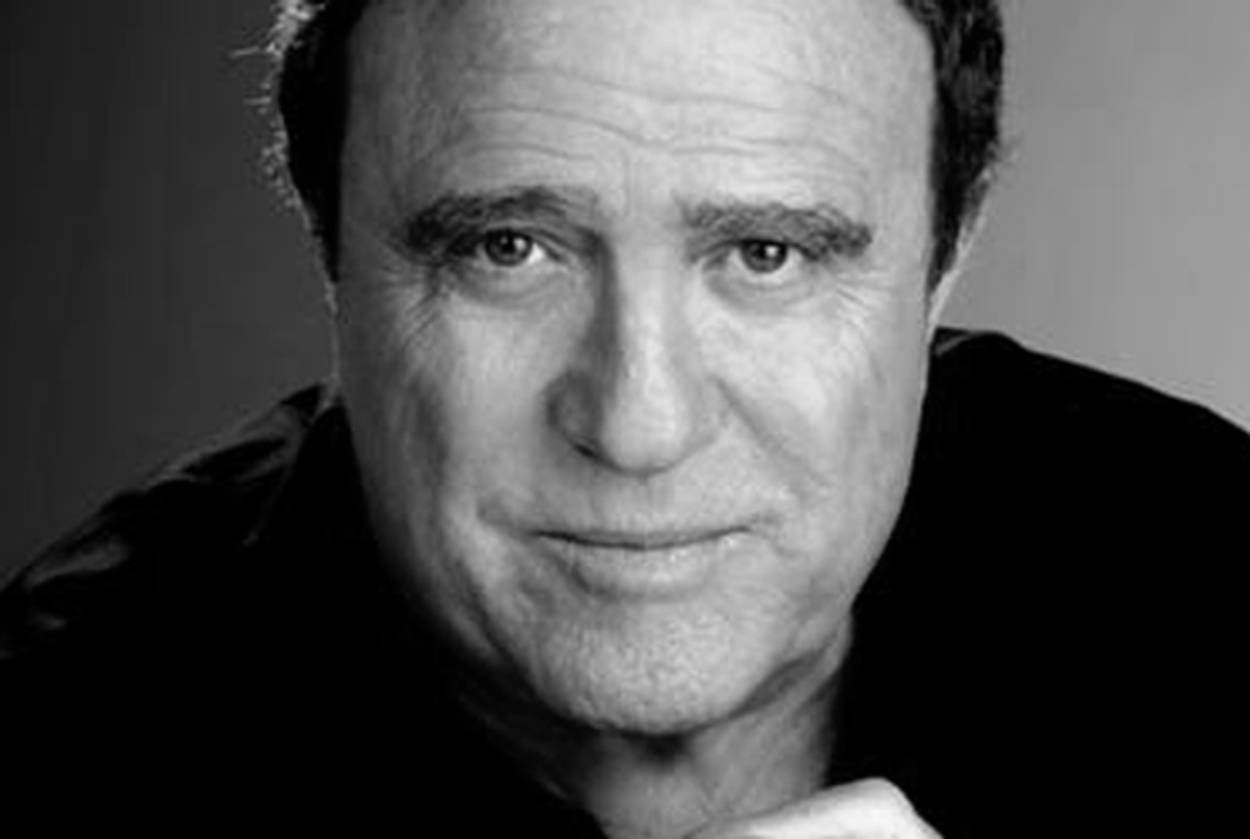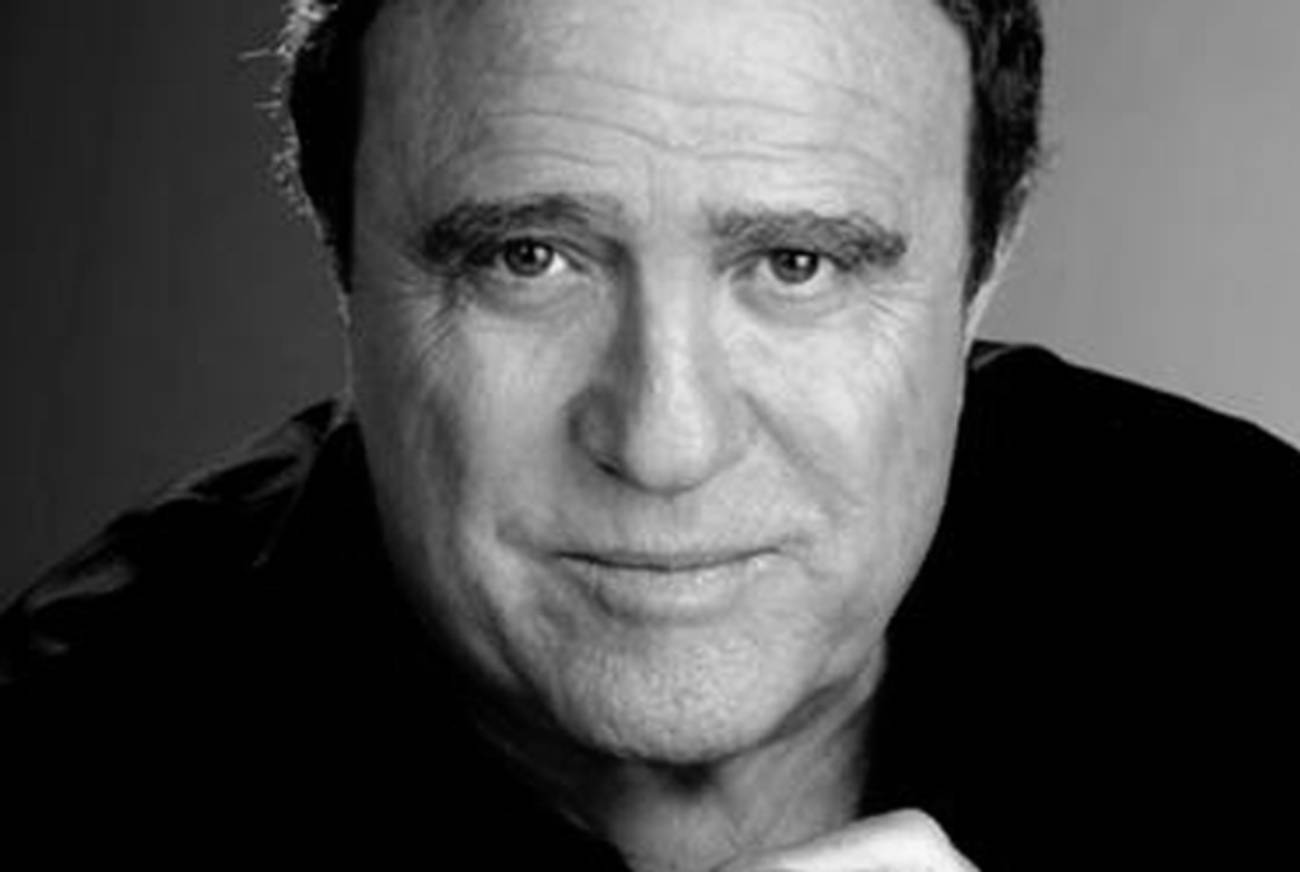Israeli Singer Yehoram Gaon’s Music Comeback
Listen to the first single off his new album with Mizrahi singer Amir Benayoun




Nearly 17 years after his last album, Yehoram Gaon—one of Israel’s most prominent public figures; a singer, actor, director, producer, and radio host—is making a musical comeback, which is considered such a mega-event in Israel that it even made it on the Channel 2 News.
Today he might be a 73-year-old television personality with weird hair who hosts kids shows, but throughout his career, which spans over half a century, Gaon has done everything from portraying the sexy Moroccan thug from Jaffa in the popular musical Kazablan–both on stage in the late 1960s and in the 1973 film–to starring as a hypochondriacal family man in Israel’s first-ever sitcom, Krovim Krovim. Even though he started out as an actor in of the Nahal Brigade Entertainment Troupe, Gaon became one of Israel’s best-known singers, releasing albums ranging from schmaltz-pop to “Shirei Eretz Yisrael” (“Songs of the Land of Israel”). Gaon has always been an all-around entertainer, and he sits comfortably in the upper echelons of the Israeli entertainment canon: he was voted the 27th-greatest Israeli of all time in a poll by the news website Ynet, and received the prestigious Israel Prize for Hebrew song in 2004.
Gaon found himself in the center of controversy in March 2011, after he expressed negative feelings toward Mizrahi music in an interview with Ariel University’s student newspaper. The interview made it to Yediot Ahronot, where Gaon was quoted as saying Mizrahi music was “trash that even the devil wouldn’t come up with,” prompting a media attack from young Mizrahi singers, who labeled Gaon a racist. Gaon didn’t take back his remark, though he clarified that he wasn’t talking about all Mizrahi-music, just the bad kind. He even made a list of his favorite musicians associated with the genre, among them singer-songwriter and contemporary Mizrahi sensation Amir Benayoun, whose music is widely considered ‘quality Mizrahi,’ even by those who aren’t fond of the genre.
Sure enough, Gaon has been spending the last couple of years working with Benayoun on a comeback album, which features songs all written by Benayoun. Some tried painting this collaboration as Gaon’s peace offering to the Mizrahi community, but this is clearly not the case: Benayoun himself has never approved of the low-grade, commercial Mizrahi music which Gaon went off on, since it typically combines cheap Euro-dance with silly lyrics and oriental vocal embellishments. Benayoun has famously claimed that what is known as Mizrahi-music—meaning “Eastern music” in Hebrew—is in fact very Western, and doesn’t have anything to do with real Arabic music. As his own hit songs, as well as the new single he wrote for Gaon, clearly show, Benayoun has a flair for the dramatic (not to mention melancholic), and doesn’t really have anything in common with Kobi Peretz, Sarit Hadad and the rest of Israel’s Mizrahi pop idols.
Yehoram Gaon just released the first single from his upcoming album: a pathos-filled piano ballad called “Ten li Koach,” meaning “Give me Strength”. A full album and a new tour schedule will follow in the next few months. “Working on the album was part of a long and moving process, which was different from anything I knew up until now,” Gaon said in a press-conference. “Amir and I embarked on a journey, which will come to an end with the release of the album, in a few months from now. It’s been a very long time.”
Related: Voices Raised for Jerusalem [Vox Tablet]
Dana Kessler has written for Maariv, Haaretz, Yediot Aharonot, and other Israeli publications. She is based in Tel Aviv.